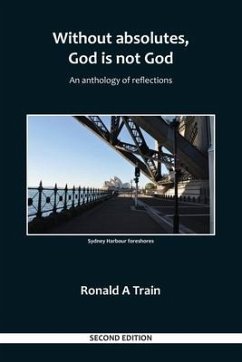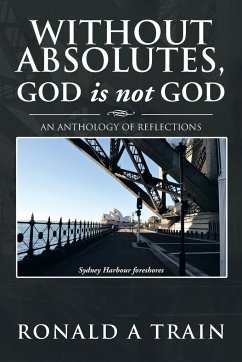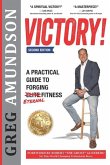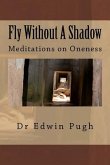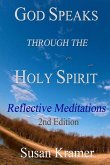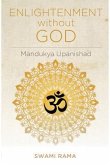As a Christian, it is foundational, I believe, to hold to absolutes. For example, a Christian should have absolutes about God's ontology (the principle of being), absolutes about theology (the study of God), absolutes about Christology (the study of Christ), and absolutes about pneumatology (the study of the Holy Spirit). Each of the foregoing absolutes, I believe, impacts upon how one constructs a worldview and how one considers the wider implications of God's kingdom work; hence the reason why I have titled this collection of essays 'Without absolutes, God is not God'. I guess the reader will be asking himself or herself as to why there is a requirement to hold to absolutes. The need for absolutes is not complex. In reality, the argument determines whether one is a believer or non-believer in the triune God. A believer will weigh whether God 'revelationally' speaks into this world generally and specifically. A non-believer will object to such a proposition and, as a consequence, leave himself or herself open to other belief systems. To, perhaps, put it another way, a non-believer is faced with the choice of deciding whether God is a reality or whether God is a creation of human imagination.
Hinweis: Dieser Artikel kann nur an eine deutsche Lieferadresse ausgeliefert werden.
Hinweis: Dieser Artikel kann nur an eine deutsche Lieferadresse ausgeliefert werden.

